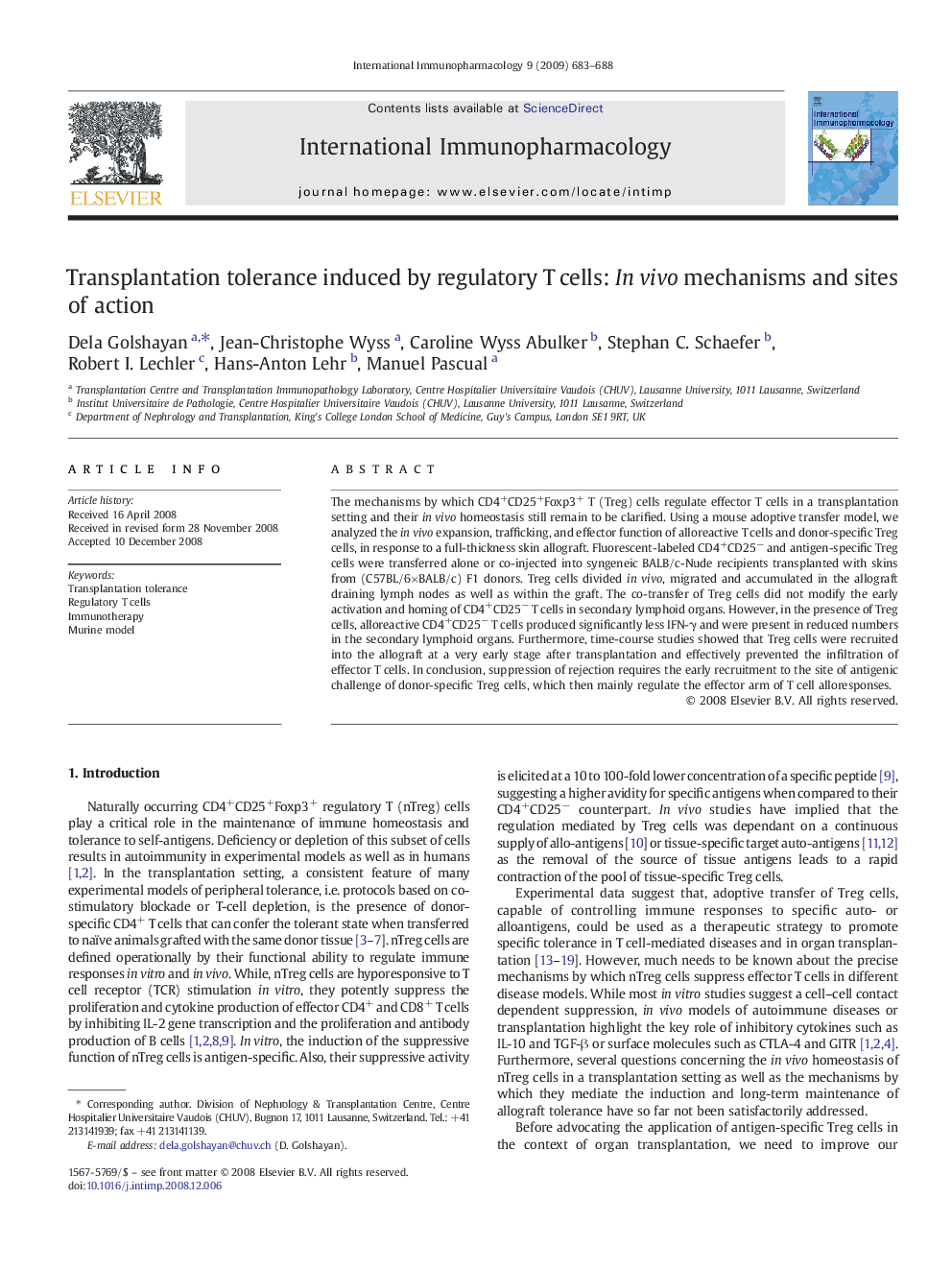| کد مقاله | کد نشریه | سال انتشار | مقاله انگلیسی | نسخه تمام متن |
|---|---|---|---|---|
| 2542058 | 1122686 | 2009 | 6 صفحه PDF | دانلود رایگان |

The mechanisms by which CD4+CD25+Foxp3+ T (Treg) cells regulate effector T cells in a transplantation setting and their in vivo homeostasis still remain to be clarified. Using a mouse adoptive transfer model, we analyzed the in vivo expansion, trafficking, and effector function of alloreactive T cells and donor-specific Treg cells, in response to a full-thickness skin allograft. Fluorescent-labeled CD4+CD25− and antigen-specific Treg cells were transferred alone or co-injected into syngeneic BALB/c-Nude recipients transplanted with skins from (C57BL/6×BALB/c) F1 donors. Treg cells divided in vivo, migrated and accumulated in the allograft draining lymph nodes as well as within the graft. The co-transfer of Treg cells did not modify the early activation and homing of CD4+CD25− T cells in secondary lymphoid organs. However, in the presence of Treg cells, alloreactive CD4+CD25− T cells produced significantly less IFN-γ and were present in reduced numbers in the secondary lymphoid organs. Furthermore, time-course studies showed that Treg cells were recruited into the allograft at a very early stage after transplantation and effectively prevented the infiltration of effector T cells. In conclusion, suppression of rejection requires the early recruitment to the site of antigenic challenge of donor-specific Treg cells, which then mainly regulate the effector arm of T cell alloresponses.
Journal: International Immunopharmacology - Volume 9, Issue 6, June 2009, Pages 683–688